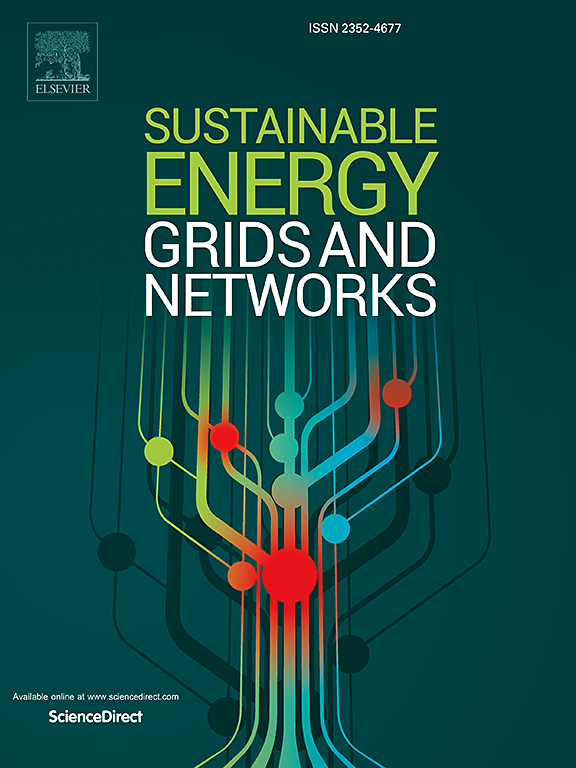Triple-stage coordinated planning for electricity and heat integrated energy system considering detailed modeling of generalized energy storages
IF 5.6
2区 工程技术
Q2 ENERGY & FUELS
引用次数: 0
Abstract
In the context of Energy Internet, the planning of electricity and heat integrated energy systems (EHIESs) from scratch supported by generalized energy storage (GES) is expected to be a significant trend. Addressing the challenges of coordinating energy stations and energy supply network planning, a triple-stage coordinated planning method for EHIES considering detailed modeling of GES is proposed in this paper. In the first stage, an energy station location and supply area partitioning optimization submodel is proposed to minimize the sum of the products of the Manhattan distances. In the second stage, the energy supply route topology planning optimization submodel considering shared routes is proposed, aiming to minimize the sum of the comprehensive energy moments. In the third stage, an equipment capacity planning and pipeline selection optimization submodel for energy stations is proposed, incorporating detailed modeling of GES. This stage builds upon the optimization results derived from the first two stages, focusing on minimizing the total planning and operating costs of the EHIES. Case studies on an improved 55-bus EHIES and the larger-scale 205-bus EHIES are conducted, and simulation results demonstrate that the proposed method reduces the total planning and operating costs by 0.12–1.4 % compared to other similar planning methods.
考虑广义储能详细建模的电、热一体化能源系统三阶段协调规划
在能源互联网背景下,以广义储能(GES)为支撑,从零开始规划电、热一体化能源系统(EHIESs)有望成为一个重要趋势。针对能源站与供电网协调规划的挑战,提出了一种考虑能源站详细建模的三阶段能源站协调规划方法。在第一阶段,提出了以曼哈顿距离乘积和最小为目标的能源站选址和供电区域划分优化子模型;第二阶段,以综合能量矩之和最小为目标,提出了考虑共享路径的供电路径拓扑规划优化子模型。第三阶段,提出了能源站设备容量规划和管道选择优化子模型,并将GES详细建模。该阶段以前两个阶段的优化结果为基础,重点是最小化EHIES的总体规划和运营成本。仿真结果表明,与同类规划方法相比,该方法总体规划和运行成本降低了0.12-1.4 %。
本文章由计算机程序翻译,如有差异,请以英文原文为准。
求助全文
约1分钟内获得全文
求助全文
来源期刊

Sustainable Energy Grids & Networks
Energy-Energy Engineering and Power Technology
CiteScore
7.90
自引率
13.00%
发文量
206
审稿时长
49 days
期刊介绍:
Sustainable Energy, Grids and Networks (SEGAN)is an international peer-reviewed publication for theoretical and applied research dealing with energy, information grids and power networks, including smart grids from super to micro grid scales. SEGAN welcomes papers describing fundamental advances in mathematical, statistical or computational methods with application to power and energy systems, as well as papers on applications, computation and modeling in the areas of electrical and energy systems with coupled information and communication technologies.
 求助内容:
求助内容: 应助结果提醒方式:
应助结果提醒方式:


